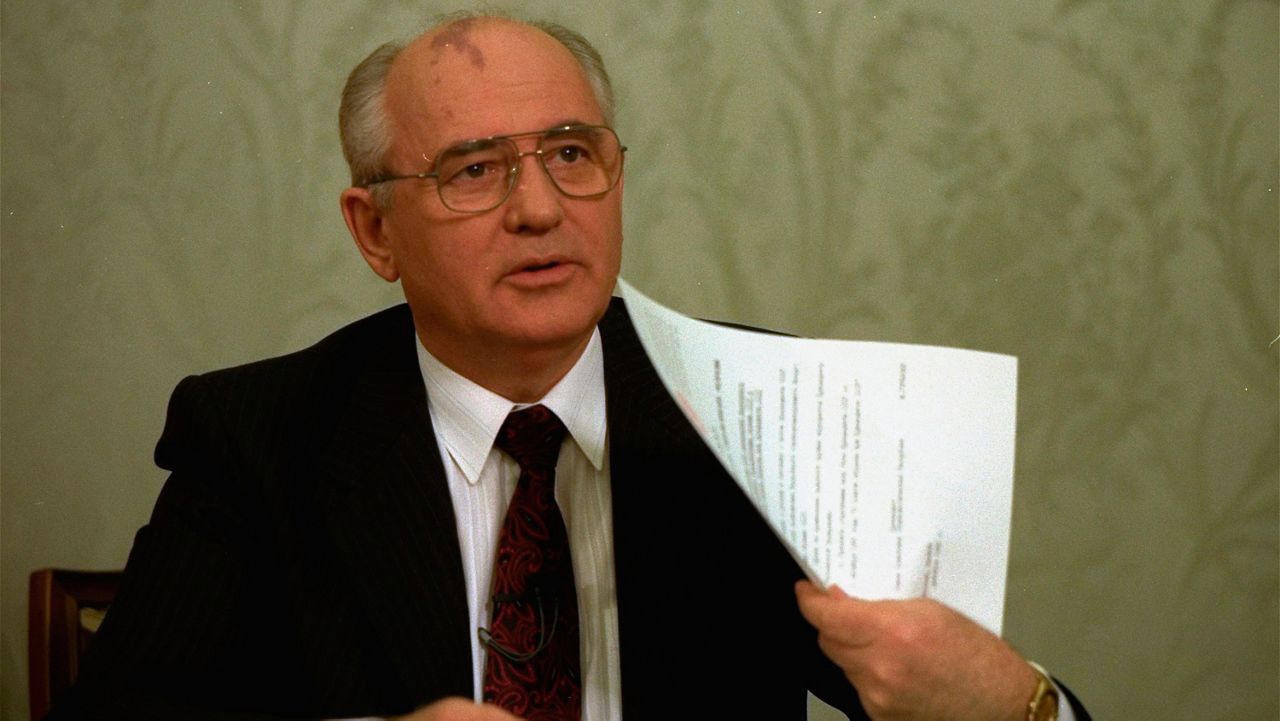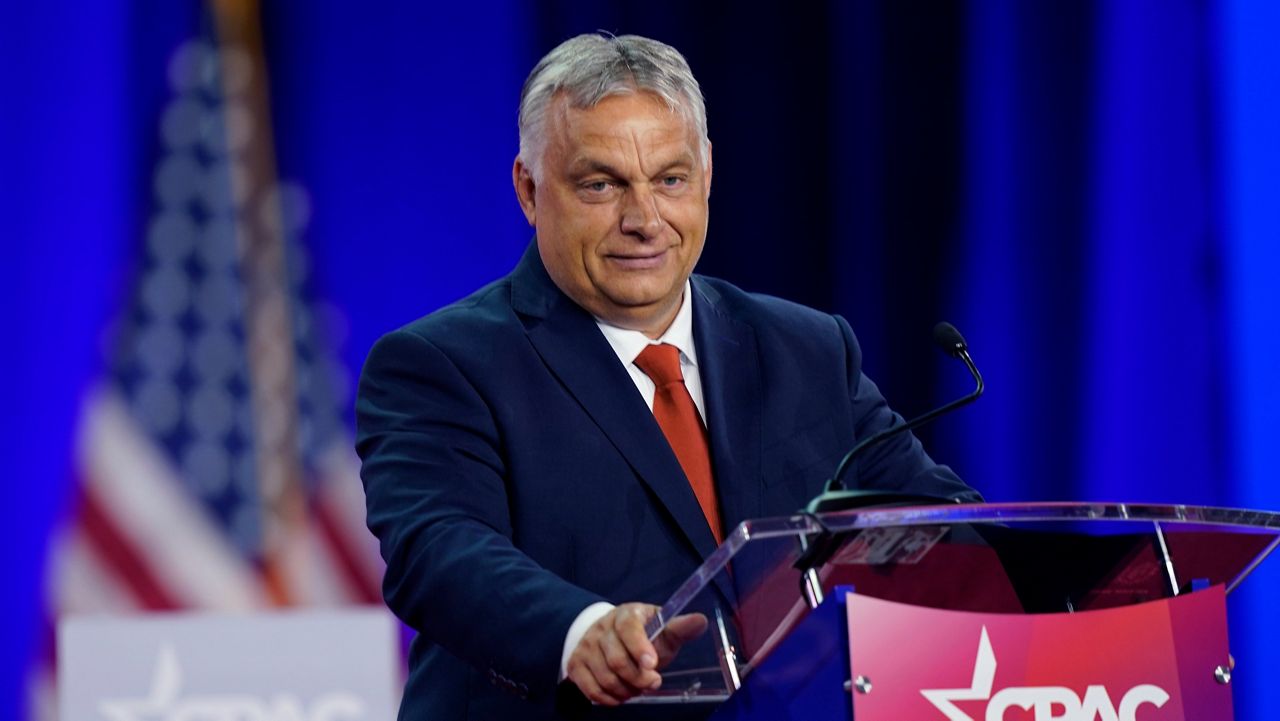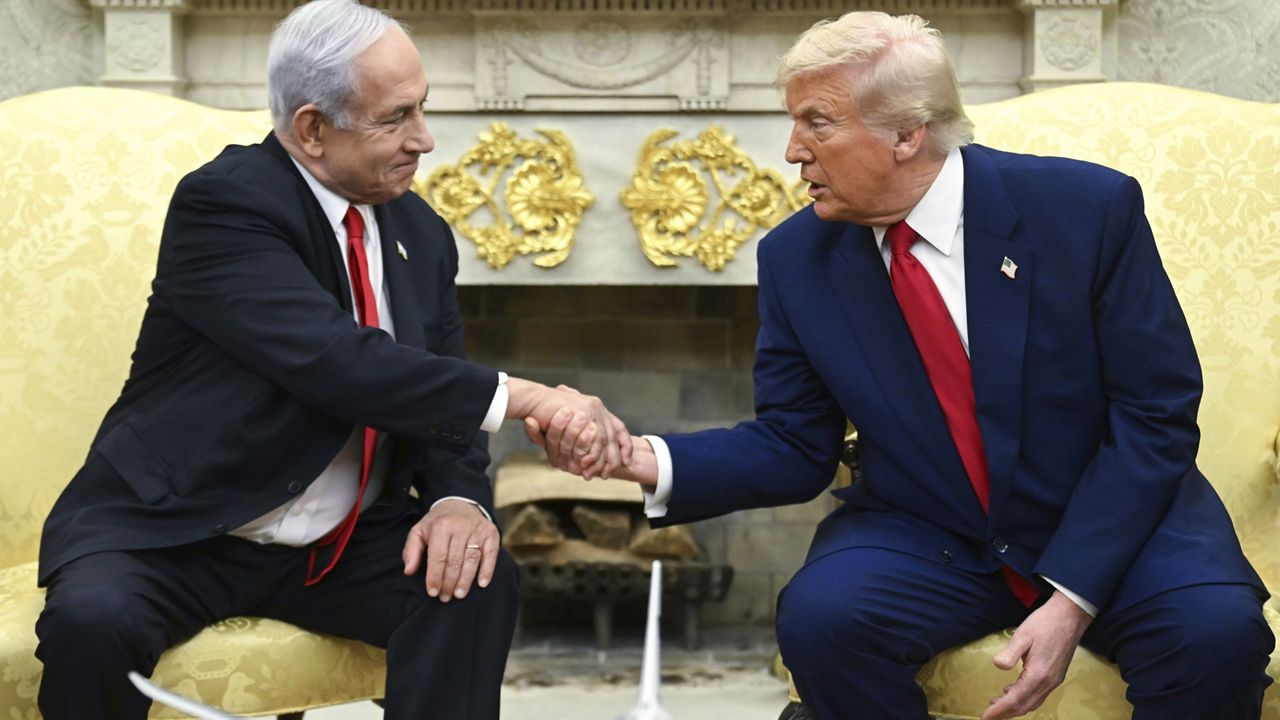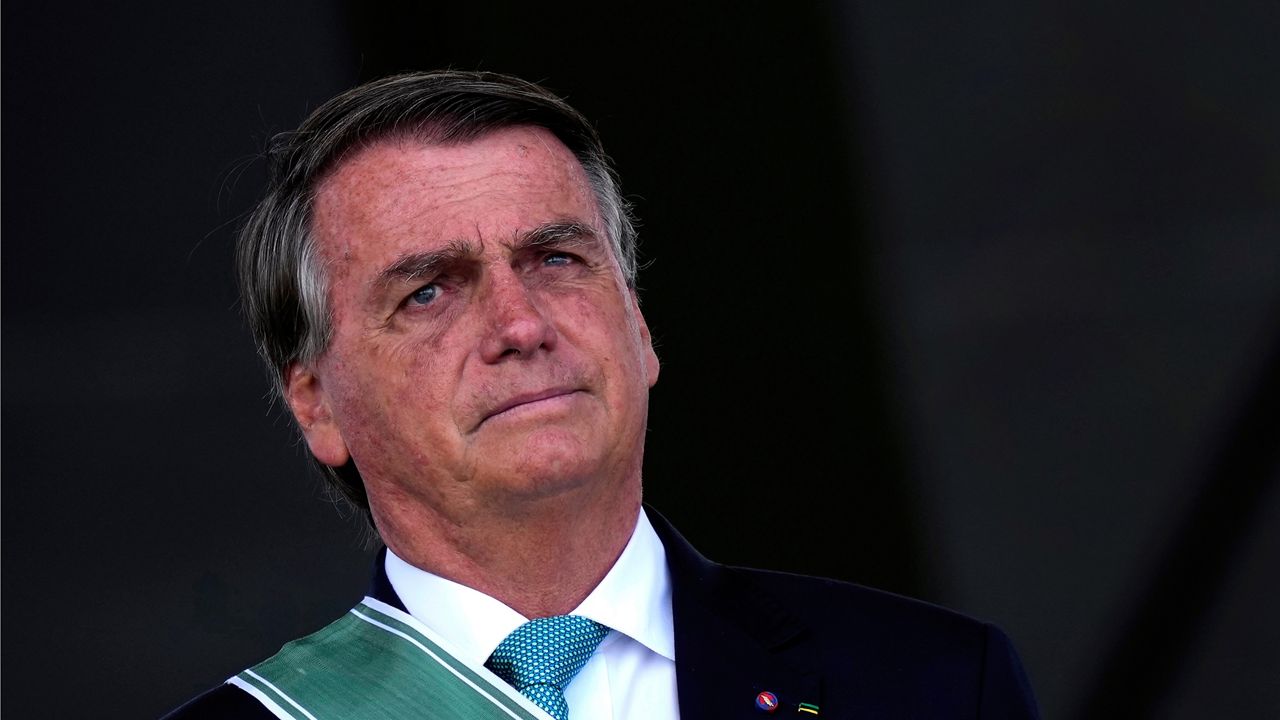Mikhail Gorbachev, the eighth and final leader of the Soviet Union, has died, Russian state media reported Tuesday. He was 91.
According to Moscow's Central Clinical Hospital, per Tass and RIA Novosti, Gorbachev died after a prolonged and severe illness. No other details were immediately available. Gorbachev’s office said earlier that he was undergoing treatment at the hospital.
As the final leader of the Soviet Union, Gorbachev waged a losing battle to salvage a crumbling empire, but produced extraordinary reforms that led to the end of the Cold War.
"Mikhail Gorbachev was a man of remarkable vision," President Joe Biden wrote in a statement. "When he came to power, the Cold War had gone on for nearly 40 years and communism for even longer, with devastating consequences. Few high-level Soviet officials had the courage to admit that things needed to change."
"As leader of the USSR, he worked with President Reagan to reduce our two countries’ nuclear arsenals, to the relief of people worldwide praying for an end to the nuclear arms race," Biden continued. "After decades of brutal political repression, he embraced democratic reforms. He believed in glasnost and perestroika – openness and restructuring – not as mere slogans, but as the path forward for the people of the Soviet Union after so many years of isolation and deprivation."
"These were the acts of a rare leader – one with the imagination to see that a different future was possible and the courage to risk his entire career to achieve it," Biden added. "The result was a safer world and greater freedom for millions of people."
Though in power less than seven years, he unleashed a breathtaking series of changes. But they quickly overtook him and resulted in the collapse of the authoritarian Soviet state, the freeing of Eastern European nations from Russian domination and the end of decades of East-West nuclear confrontation.
His decline was humiliating. His power hopelessly sapped by an attempted coup against him in August 1991, he spent his last months in office watching republic after republic declare independence until he resigned on Dec. 25, 1991. The Soviet Union wrote itself into oblivion a day later.
Many of the changes, including the Soviet breakup, bore no resemblance to the transformation that Gorbachev had envisioned when he became the Soviet leader in March 1985.
By the end of his rule he was powerless to halt the whirlwind he had sown. Yet Gorbachev may have had a greater impact on the second half of the 20th century than any other political figure.
“I see myself as a man who started the reforms that were necessary for the country and for Europe and the world,” Gorbachev told The Associated Press in a 1992 interview shortly after he left office.
“I am often asked, would I have started it all again if I had to repeat it? Yes, indeed. And with more persistence and determination,” he said.
Gorbachev won the 1990 Nobel Peace Prize for his role in ending the Cold War and spent his later years collecting accolades and awards from all corners of the world. Yet he was widely despised at home.
Russians blamed him for the 1991 implosion of the Soviet Union — a once-fearsome superpower whose territory fractured into 15 separate nations. His former allies deserted him and made him a scapegoat for the country’s troubles.
Tass reported that Gorbachev will be buried at Moscow’s Novodevichy cemetery next to his wife.
This is a developing story. Check back later for updates.








